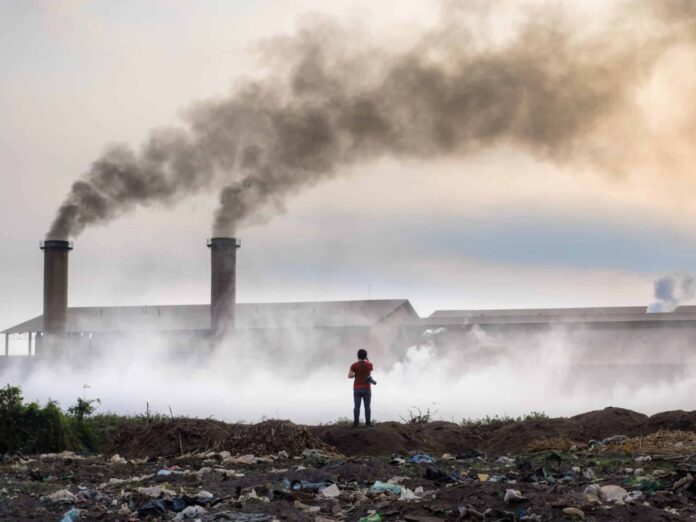Introduction:
Pollution, in its colourful forms, poses one of our time’s most significant environmental challenges. Whether it’s air pollution, water impurity, or the accumulation of waste in tips, uncontrolled pollution negatively impacts mortal health, wildlife, and the earth. Addressing this issue isn’t an invincible task. Thomas skip hire offers reliable, eco-friendly waste management solutions, providing skips for both residential and commercial projects at competitive prices.
There are multitudinous ways individualities, associations, and governments can take to alleviate and reduce pollution. Below are five effective strategies to check uncontrolled pollution.
Transition to Renewable Energy Sources
Burning fossil energy for energy generation is one of the leading causes of air pollution encyclopedically. Coal, oil painting, and natural gas release dangerous chows similar to carbon dioxide( CO2), sulfur dioxide( SO2), and nitrogen oxides( NOx), which contribute to climate change and air quality decline. To significantly reduce pollution, it’s essential to shift from reactionary energy-grounded energy to cleaner, renewable sources like solar, wind, hydroelectric, and geothermal energy.
Why it works?
Reduction in Greenhouse feasts
Renewable energy sources produce little to no hothouse gas emigrations during operation. This shift would drastically reduce the carbon footmark associated with power generation.
Cleaner Air
By reducing reliance on fossil energies, air quality improves as smaller dangerous adulterants are released into the atmosphere. Solar and wind power, for illustration, don’t produce air adulterants like particulate matter, which is dangerous to respiratory health.
Sustainable Growth
Unlike fossil energies, renewable energy is unwavering and can be exercised without depleting the earth’s coffers.
Promote Sustainable Transportation
Transportation is another significant contributor to pollution, especially in civic areas. A large quantity of CO2, NOx, and particular matter is released by the vehicles that run on gasoline and diesel all of which contribute to air pollution and global warming. The transportation sector has great eventuality for change, particularly with the rise of electric vehicles( EVs), public transportation systems, and indispensable energies like hydrogen.
Why it works?
Reduction in Greenhouse Gas Emigration
Electric vehicles( EVs) emit far smaller hothouse feasts compared to conventional internal combustion machine vehicles. With the relinquishment of EVs powered by renewable energy, transportation can become a carbon-neutral sector.
Cleaner Municipalities
Electrification of public transport systems like motorcars and trains can help reduce the air pollution situations in municipalities. also, expanding cycling and walking structures promotes healthier, cleaner, and more sustainable civic surroundings.
Dropped Business Traffic
Well-designed public transportation networks can reduce the number of private vehicles on the road, leading to lower business traffic and lower overall emigration.
Ameliorate Waste Management and Promote Recycling
The mismanagement of waste contributes significantly to environmental pollution, especially in tips and deeps. When waste isn’t disposed of rightly, it can lead to soil impurity, air pollution from the corruption of organic matter, and water pollution from chemicals and plastics filtering into water sources. Proper waste operation, including effective recycling programs, composting, and reducing plastic use, is essential to reduce uncontrolled pollution.
Why it works?
Lower Waste in tips
Effective recycling and composting help divert accouterments from tips, precluding them from releasing dangerous adulterants into the air and water.
Reduction in Ocean Pollution
A significant chance of ocean pollution comes from plastic waste. By reducing plastic consumption, encouraging recycling, and promoting biodegradable resources, the quantum of plastic in our deeps will drop.
Resource Conservation
Recycling helps conserve raw accouterments, reducing the environmental impact associated with rooting and recycling new accouterments. This helps in reducing artificial emigration and resource reduction.
Educating the public on the significance of waste isolation and composting is another effective step toward reducing pollution. Businesses can also invest in sustainable packaging and borrow indirect frugality models that concentrate on reusing stuff rather than discarding it.
Apply Stringent Industrial Regulations and Practices
Diligence is among the largest contributors to pollution, particularly through the emigration of poisonous chemicals, undressed wastewater, and improper waste disposal. Multiple artificial conditioning affects high situations of air, water, and soil pollution, affecting girding communities and ecosystems. Governments can alleviate artificial pollution by enforcing and administering stricter environmental regulations and promoting greener manufacturing practices.
Why it works?
Limiting poisonous Emigrations
By setting limits on the quantum of poisonous contaminants that can be released into the air and water, governments can ensure that diligence is held responsible for their environmental impact.
Relinquishment of Cleaner Technologies
Encouraging diligence to borrow cleaner product technologies, similar to low-carbon manufacturing processes and energy-effective ministry, can significantly reduce emigration.
Conclusion
Reducing uncontrolled pollution requires combined sweat from individuals, businesses, and governments. By transitioning to renewable energy, promoting sustainable transportation, perfecting waste operations, administering stricter artificial regulations, and espousing sustainable agrarian practices, we can make significant strides in pacifying pollution and creating a healthier earth. As each of these strategies works to reduce dangerous adulterants, they inclusively contribute to a cleaner, more sustainable future for generations to come.
Also, read: 7 Common Mistakes to Avoid When Handling Household Waste








